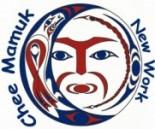
Chee Mamuk is a provincial Aboriginal program housed at the British Columbia Centre for Disease Control (BCCDC) that provides innovative and culturally appropriate sexually transmitted infection (STI), Hepatitis, and HIV training, educational resources, and wise practice models.
Chee Mamuk’s services are grounded in community, tradition and science in order to promote healthy sexuality and to build capacity in Aboriginal communities to prevent the spread of HIV, Hepatitis, and STIs. Chee Mamuk’s ongoing relationship with Aboriginal communities is very important to the success of the program.
The vision for Chee Mamuk is; a life characterized by healthy sexuality and free of STIs, Hepatitis, and HIV/AIDS for Indigenous peoples. Chee Mamuk values creativity, building on strength, building on tradition and culture, integrity, and collaboration. Chee Mamuk has a holistic, positive approach that sees the value in every life. Chee Mamuk is built on a harm reduction model.
Chee Mamuk provides workshops for Aboriginal children, youth, adults and Elders and training for frontline staff who work in Aboriginal communities. The workshops and trainings are fun, interactive, and flexible. They have been created and designed to suit the needs of Aboriginal people.
A great success of Chee Mamuk is the Around the Kitchen Table (ATKT) project. ATKT is a fun, interactive 4-day workshop that brings Aboriginal women together to learn about HIV/AIDS, hepatitis and sexual health education. This training is centered around community, food, laughter, traditional activities and support. ATKT follows a traditional approach, recognizing that traditional knowledge and skills are passed through informal day-to-day activities. ATKT also honours Aboriginal women as natural teachers and leaders in their communities.
ATKT helps increase healthy self-esteem and identity. The goal of the ATKT model is to train women in Aboriginal communities to be ATKT leaders. These leaders then implement a series of ATKT sessions with women in their own communities. These sessions combine information about HIV, hepatitis and sexually transmitted infections (STIs) with cultural activities such as cedar bark weaving or beadwork.
One ATKT participant states; ‘In all the years that I have had the opportunity to participate in training, this was simply the best training I have experienced to date. The facilitation tools and the format of the program is clearly outlined and they haven't missed a thing in providing you all the resources in your kit to run the program yourself when you return to your community.’
Chee Mamuk has designed a training called “Mobilizing on HIV/AIDS and STIs in Aboriginal Communities”. In the Mobilizing training, participants gain knowledge, skills and resources needed to mobilize on HIV/AIDS and Sexually Transmitted Infections (STIs) programming in their communities. This course is suited for Community Health Workers, Youth Workers, Drug and Alcohol Counselors, Community Health Nurses, Health Directors, and Chief and Council. Highlights of the training include hearing a personal story of someone living with HIV, sharing of ideas across communities, and a fun and engaging follow up activity called “Mission Possible”. Participants also create their own community plan and learn what resources to refer community members to.
Chee Mamuk has also created a wide array of educational resources that are used to promote healthy sexuality and create awareness of HIV. Each of the resources have an Aboriginal focus, and are well received in the communities.
For more information about Chee Mamuk, please visit www.bccdc.ca













